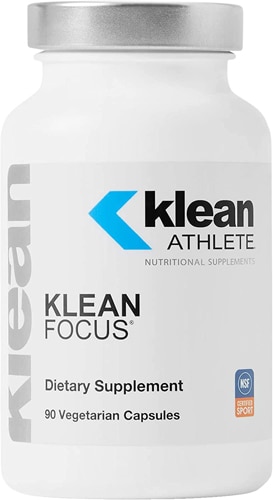 Although an all-nighter may seem to be an efficient way to study for an exam or meet a project deadline, the facts tell another story. Research has shown that the majority of those who study all night tend to have lower GPAs than their well-rested peers. Sleep deprivation has other consequences as well, such as increased risk of academic failure, compromised learning, impaired mood, depression, poor judgment, irritability and increased risk of motor vehicle accidents.
And all-nighters are pervasive amongst students. It seems. According to a study done at an Architecture School in the Midwest, only 4 percent of students obtained at least 7 hours of sleep at night; the average sleep duration was 5.7 hours, with 2.7 all-nighters per month. Eighty-two percent of the college students who took part in the study felt their school performance was impacted by inadequate sleep. Sleep problems ranked second only to stress in terms of the most likely suspect to derail academic performance.
So what happens to your brain when you skip a night of sleep?
Many experts say that the brain loses efficiency with each hour of sleep deprivation. One of the biggest tolls losing a night of sleep has is on working memory. When we cram, our brains only use short-term memory. But to retain information for any length of time, we need to utilize our long-term memory. Information that comes in quick leaves just as quickly. Too much information too fast doesn’t allow the information to assimilate; instead it gets rapidly extinguished. Sleeping helps both with assimilation and with memory consolidation.
Another problem with studying all night: The brain becomes weary as the day progresses. Our capacity to learn and memorize shines brightest in the morning, which is when peak cognitive efficiency occurs.
How to optimize your study habits:
Chunk up your studying, rather than doing it all last minute. One approach to try is studying in small chunks (20 to 30 minutes), multiple times per day, three to four days in advance of the test. The repetition of information allows your brain to move those facts to long-term memory, which makes for better—and longer—recall.
But if you do pull an all-nighter, here’s how to help your body and brain recover:
Sleep in. Catch up on sleep by making it up as soon as possible. Go to bed early for a few nights after your all-nighter and let yourself sleep in as late as possible till you naturally wake up.
Nap strategically. A 15-20 minute nap can boost your alertness for several hours after you wake up. Some studies show that napping may improve certain memory tasks.
Caffeinate carefully. If used with moderation, 400 milligrams or less, caffeine can help with focus and concentration. But it works better spread through the day in small doses than consuming a large amount at once.
On a general note, college students are prone to several poor sleep habits. They tend to use alcohol before bed, and sometimes even as a sleep aid, which although it can help you fall asleep leads to fragmented sleep in the later part of the night. The takeaway? If you want to sleep better, eschew alcohol.
Secondly, students are prone to abuse energy drinks, or at least consume regularly, which may interfere with sleep quality. Keeping caffeine intake moderate works best for a regular sleep routine.
Thirdly, technology is a major culprit when it comes to impacting sleep. Computers, tablets and cell phones emit a blue light that can suppress our body’s melatonin levels, delaying our natural inclination towards bedtime. For optimal sleep, it’s smart to power down an hour or two before bed.
Although an all-nighter may seem to be an efficient way to study for an exam or meet a project deadline, the facts tell another story. Research has shown that the majority of those who study all night tend to have lower GPAs than their well-rested peers. Sleep deprivation has other consequences as well, such as increased risk of academic failure, compromised learning, impaired mood, depression, poor judgment, irritability and increased risk of motor vehicle accidents.
And all-nighters are pervasive amongst students. It seems. According to a study done at an Architecture School in the Midwest, only 4 percent of students obtained at least 7 hours of sleep at night; the average sleep duration was 5.7 hours, with 2.7 all-nighters per month. Eighty-two percent of the college students who took part in the study felt their school performance was impacted by inadequate sleep. Sleep problems ranked second only to stress in terms of the most likely suspect to derail academic performance.
So what happens to your brain when you skip a night of sleep?
Many experts say that the brain loses efficiency with each hour of sleep deprivation. One of the biggest tolls losing a night of sleep has is on working memory. When we cram, our brains only use short-term memory. But to retain information for any length of time, we need to utilize our long-term memory. Information that comes in quick leaves just as quickly. Too much information too fast doesn’t allow the information to assimilate; instead it gets rapidly extinguished. Sleeping helps both with assimilation and with memory consolidation.
Another problem with studying all night: The brain becomes weary as the day progresses. Our capacity to learn and memorize shines brightest in the morning, which is when peak cognitive efficiency occurs.
How to optimize your study habits:
Chunk up your studying, rather than doing it all last minute. One approach to try is studying in small chunks (20 to 30 minutes), multiple times per day, three to four days in advance of the test. The repetition of information allows your brain to move those facts to long-term memory, which makes for better—and longer—recall.
But if you do pull an all-nighter, here’s how to help your body and brain recover:
Sleep in. Catch up on sleep by making it up as soon as possible. Go to bed early for a few nights after your all-nighter and let yourself sleep in as late as possible till you naturally wake up.
Nap strategically. A 15-20 minute nap can boost your alertness for several hours after you wake up. Some studies show that napping may improve certain memory tasks.
Caffeinate carefully. If used with moderation, 400 milligrams or less, caffeine can help with focus and concentration. But it works better spread through the day in small doses than consuming a large amount at once.
On a general note, college students are prone to several poor sleep habits. They tend to use alcohol before bed, and sometimes even as a sleep aid, which although it can help you fall asleep leads to fragmented sleep in the later part of the night. The takeaway? If you want to sleep better, eschew alcohol.
Secondly, students are prone to abuse energy drinks, or at least consume regularly, which may interfere with sleep quality. Keeping caffeine intake moderate works best for a regular sleep routine.
Thirdly, technology is a major culprit when it comes to impacting sleep. Computers, tablets and cell phones emit a blue light that can suppress our body’s melatonin levels, delaying our natural inclination towards bedtime. For optimal sleep, it’s smart to power down an hour or two before bed.
Klean Athlete Klean Focus - NSF Certified for Sport Description
- Sleep & Focus
- NSF® Certified for Sport
- Gluten Free
- GMO Free
- Vegetarian / Vegan
Klean Focus® is specially formulated to help athletes dial in their mental game and keep it as strong as their physical one. The antioxidants Acetyl-L-Carnitine and Alpha Lipoic Acid provide cognitive support by assisting mitochondrial function and neurotransmitter production, while Alpha-GPC helps to protect cellular membranes. In addition, lutein helps support visual acuity, which is key to the body’s ability to adapt, process, and respond in the moment. Dial in your mental game with Klean Focus® today.
Key Benefits
-
Supports neurological processes needed for mental sharpness
-
Helps to support brain health and mental clarity with a patented, researched ratio of alpha lipoic acid, acetyl
-
L-carnitine and biotin, which works at the level of gene expression
-
Alpha-GPC supports acetylcholine production, a neurotransmitter needed for brain function
-
Supports cognitive health by providing lutein which accumulates in neural tissue
-
Berries provide phytonutrients, which have been studied for their potential to support brain function
*These statements have not been evaluated by the Food and Drug Administration. This product is not intended to diagnose, treat, cure, or prevent any disease.
| Amount Per Serving | % Daily Value | |
| Biotin | 300 mcg | 1,000% |
| Acetyl L-Carnitine HCl | 1000 mg | * |
| Alpha Lipoic Acid | 400 mg | * |
| Alpha-GPC (from soy) (L-Alpha-glycerylphosphorylcholine) | 100 mg | * |
| VitaBerry® Fruit Blend Grape (Vitis Vinifera, fruit) Grape Seed Extract (Vitis Vinifera), Wild Blueberry Extract (VacciniumAngustilfolium, whole fruit), Raspberry (Rubus Idaeus,Berry), Raspberry Seed (Rubus Idaeus) Concentrate, Cranberry (Vaccinium Macrocarpon, berry), Prune (Prunus Domestica, fruit), Tart Cherry (Prunus Cerasus, fruit), Wild Bilberry (Vaccinium Myrtillus L., whole fruit), Strawberry (Fragaria Verginia, whole fruit). | 100 mg | * |
| Lutein | 12 mg | * |
Contains: Soy.
If you are pregnant, nursing, have any health conditions or taking any medication, consult your health professional before using this product.




